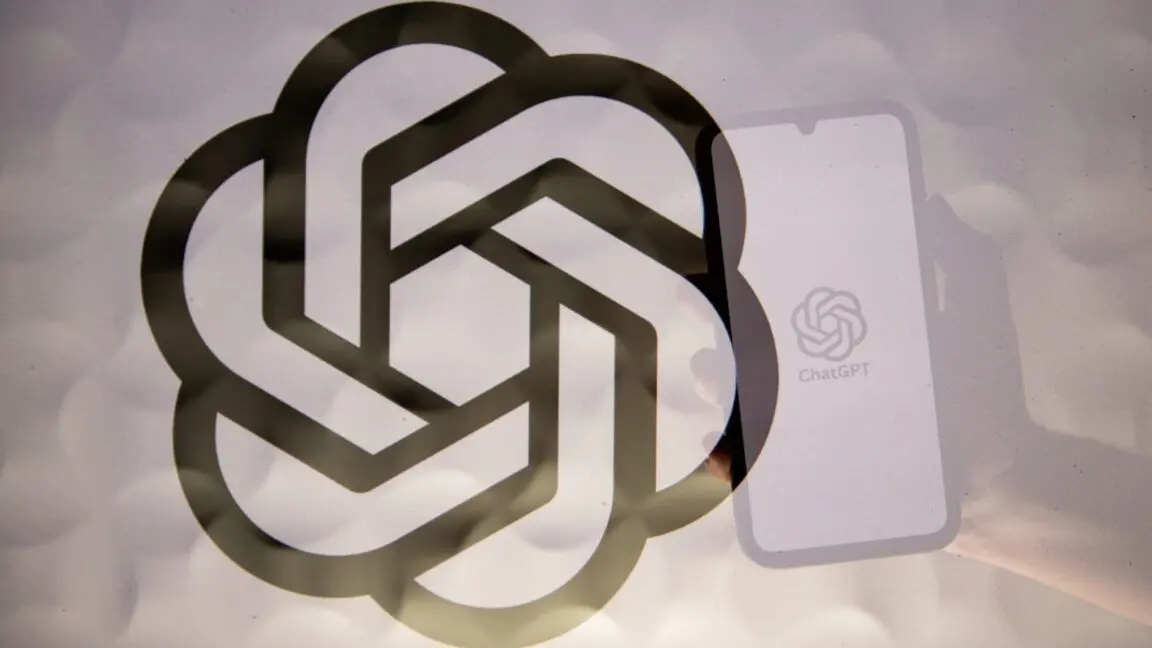India's MeitY Seeks Proposals for AI Risk Management and Deepfake Detection Tools
2 Sources
2 Sources
[1]
MeitY Invites Projects for AI Risk Management, Deepfake Detection
We missed this earlier: The Ministry of Electronics and Information Technology (MeitY) has invited proposals from various individuals and organisations to undertake projects under the "Safe & Trusted AI" pillar of the government's IndiaAI mission. The projects would help mitigate AI-related risks, foster accountability, and promote fairness in AI practices, claims the ministry. The Expressions of Interest (EoI) must be aligned around the following themes: Applicants from the following categories can apply for projects under this mission: 1. Academic Institutions: Such organisations must include pre-existing lab structures and their Chief Investigator/Co-Chief Investigator should be faculty with relevant experience in the field of responsible AI. The following categories of institutions are applicable: 2. Private Academic Institutions: This includes institutions offering education degrees on AI and must have approval by the All India Council for Technical Education (AICTE) or the NAAC (National Assessment and Accreditation Council) of the UGC. 3. Autonomous bodies: This comprises public sector organisations, non-profits, and research institutions. 4. Start-Ups and Companies: The start-ups should adhere to the Department for Promotion of Industry and Internal Trade (DPIIT) norms, must be in operation for at least two years, and should demonstrate reasonable AI expertise. Further, Indian citizens or persons of Indian origin must hold a 51% share in these organisations. The final date for submission of the proposals is January 9, 2025. "Safe & Trusted AI" forms one of the seven pillars of the IndiaAI mission approved in March 2024. This component focuses on implementing responsible artificial intelligence projects, including the development of indigenous tools, self-assessment checklists, and government frameworks to ensure ethical AI development, deployment, and adoption. Recently, during a Lok Sabha query about the breakdown of the Rs 10,372 crore budget for the IndiaAI mission, officials disclosed that the "Safe & Trusted AI" pillar received an allocation of Rs 20.46 crore, the lowest among all segments. In line with this, strict guidelines for budget allocation have been outlined within the invite for the proposals. To explain, categories like contingency, overhead, and travel should not account for more than 5%, 5%, or 10% of the total project budget respectively among other categories. Further, the invite stipulates no funding allocation for purchasing hardware platforms like workstations, servers, laptops, or computers. The Lok Sabha response detailing the budget breakdown also raised concerns over broad budget allocations provided across different categories and the absence of defined success metrics.
[2]
MeitY Invites Proposal To Build Deepfake Detection Tool
The Ministry also seeks to develop an AI risk assessment and management frameworks to identify, assess, and mitigate cross-sectoral safety risks The Ministry of Electronics and Information Technology (MeitY) has sought proposals from startups and other relevant stakeholders for building AI-powered tools to detect deepfakes. As per the expression of interest (EoI) floated by MeitY, the Ministry has invited five proposals for the development of indigenous technical AI tools, guidelines, frameworks, and standards to create a trusted AI ecosystem. "With the increase in realism of deepfakes due to advancements in AI, it is imperative to develop deepfake detection methods that safeguard against potential misinformation and manipulation in the society," read the document. MeitY said that the potential deepfake detection should employ sophisticated deep learning algorithms, incorporate provenance-based techniques and other other detection techniques to analyse the authenticity of media and flag manipulation. It also said that the submitted deepfake detection tools should be built in a manner so that they are easily integrated into web browsers and social media platforms to enable automated cross-modal content verification, provide real-time detection and enhance security of the digital ecosystem. Another project that the ministry wants to undertake under the IndiaAI Mission is the development of a tool to differentiate AI-generated content from non-AI generated content. The EoI underlined that such a platform embed unique and imperceptible markers in AI-generated content to ensure traceability, security and prevent the generation of harmful and illegal content. The third project includes the development of a platform that can evaluate the ability of AI systems to withstand high-stress scenarios such as natural disasters, cyberattacks, data and operational failures. "Stress testing can provide actionable insights into system weaknesses and ensure preparedness for high-stakes situations. This theme focuses on the development of tools and methodologies such as simulation-based testing or stress evaluation metrics specifically designed to fortify the resilience of AI systems under stress," read the EoI. In addition, MeitY has also called on stakeholders to submit proposals for "ethical AI frameworks" that offer a structured approach to ensure that "AI systems respect fundamental human values, uphold fairness, transparency, and accountability, and avoid perpetuating biases or discrimination. "To enable largescale adoption of AI there is a need to develop comprehensive AI Risk Assessment and Management tools and frameworks designed to identify, assess, and mitigate cross-sectoral safety risks, ensuring failures in one area are contained and managed without affecting interconnected sectors," added the document. The EoI further says that the projects are open for application from startups, India-based academic institutions, R&D organisations as well as private enterprises. This comes just days after IT secretary S Krishnan reportedly said that the Ministry was building a mechanism to evaluate the safety and trustworthiness of AI solutions. At the time, he also said that the Centre is looking to prioritise innovation while steering clear of stifling regulations. Notably, the same sentiment was echoed by Union IT Minister Jyotiraditya Scindia earlier this year, saying that deployment of AI ought to be guided by ethical considerations and robust regulatory framework. At the heart of all this is the burgeoning Indian generative AI (GenAI) ecosystem, which is home to 200 startups that have raised more than $1.2 Bn in funding between 2020 and the third quarter (Q3) of 2024.
Share
Share
Copy Link
The Ministry of Electronics and Information Technology (MeitY) in India has invited proposals for projects under the "Safe & Trusted AI" pillar of the IndiaAI mission, focusing on AI risk management, deepfake detection, and ethical AI frameworks.

MeitY's Call for AI Project Proposals
The Ministry of Electronics and Information Technology (MeitY) in India has issued a call for proposals under the "Safe & Trusted AI" pillar of the IndiaAI mission. This initiative aims to address critical aspects of AI development, including risk management, deepfake detection, and ethical frameworks
1
.Key Focus Areas
The ministry is seeking proposals in several crucial areas:
-
Deepfake Detection: MeitY emphasizes the need for sophisticated tools to identify and flag manipulated media, given the increasing realism of deepfakes
2
. -
AI-Generated Content Differentiation: A tool to distinguish between AI-generated and non-AI-generated content, incorporating traceability markers
2
. -
AI System Stress Testing: Development of methodologies to evaluate AI systems' resilience under high-stress scenarios
2
. -
Ethical AI Frameworks: Structured approaches to ensure AI systems respect human values, fairness, and accountability
2
. -
AI Risk Assessment and Management: Comprehensive tools to identify and mitigate cross-sectoral safety risks in AI deployment
2
.
Eligibility and Submission Details
The ministry has outlined specific eligibility criteria for applicants:
- Academic Institutions: Must have pre-existing lab structures and experienced faculty in responsible AI
1
. - Private Academic Institutions: Required to have AICTE or NAAC-UGC approval
1
. - Autonomous Bodies: Including public sector organizations and research institutions
1
. - Startups and Companies: Must adhere to DPIIT norms, operate for at least two years, and demonstrate AI expertise
1
.
The deadline for proposal submission is set for January 9, 2025
1
.Budget Allocation and Guidelines
The "Safe & Trusted AI" pillar has been allocated Rs 20.46 crore, the lowest among all segments of the IndiaAI mission
1
. Strict budget guidelines have been established, limiting expenditure on contingency, overhead, and travel. Notably, no funding is allocated for hardware purchases like workstations or servers1
.Related Stories
Broader Context of AI Regulation in India
This initiative aligns with recent statements from government officials, including IT Secretary S Krishnan, who mentioned the development of a mechanism to evaluate AI solutions' safety and trustworthiness
2
. Union IT Minister Jyotiraditya Scindia has also emphasized the need for ethical considerations and robust regulatory frameworks in AI deployment2
.India's Growing AI Ecosystem
The call for proposals comes against the backdrop of India's flourishing generative AI sector, which boasts 200 startups that have raised over $1.2 billion in funding between 2020 and Q3 2024
2
. This initiative represents a significant step in India's efforts to foster a responsible and innovative AI ecosystem.References
Summarized by
Navi
Related Stories
India's AI Race: Government Launches IndiaAI Mission to Develop Sovereign Foundation Models
12 Feb 2025•Technology

Delhi High Court Grants Panel 3 Months to Submit Comprehensive Report on Deepfakes
25 Mar 2025•Policy and Regulation

India Proposes Stringent AI Regulations to Combat Deepfakes and Misinformation
22 Oct 2025•Policy and Regulation

Recent Highlights
1
Elon Musk merges SpaceX with xAI, plans 1 million satellites to power orbital data centers
Business and Economy

2
SpaceX files to launch 1 million satellites as orbital data centers for AI computing power
Technology

3
Google Chrome AI launches Auto Browse agent to handle tedious web tasks autonomously
Technology





